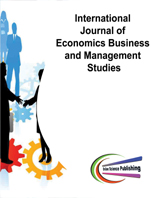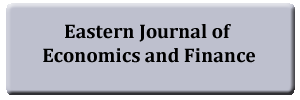Exploring the Impact of Robotisation on Economic Development
DOI:
https://doi.org/10.55284/ijebms.v9i1.626Keywords:
Automation, Artificial intelligence, Employment, Jobs, Labour, Robots, Wages.Abstract
This paper speculates about the impact of robotisation on the world economy in the next 20 years. It is argued that though robotisation of sectors destroys jobs and thereby unleashes recessionary tendencies, Artificial Intelligence (AI) enables entrepreneurs, managers and workers to make more efficient use of their time and thereby leads to an increase in time available for consumption. We highlight that in any given sector, robotisation spreads because of its greater cost efficiency as compared to conventional production. But this development by itself would lead to a decline in relative prices of products supplied by a sector and through income effects stimulate consumption. Thus, in the wake of robotisation, the recessionary tendencies emerging from the destruction of jobs are pitted against the expansionary tendencies emerging from AI facilitated increase in consumption time and the mentioned fall in relative prices. Therefore, both increased and decreased economic activity are possible but a boom is likely, given increase in demand for time and labour-intensive services. Generation of frictional unemployment with labour shifting from rapidly robotising sectors to others and possible burgeoning inequality would necessitate globally coordinated basic income schemes funded by a global robot tax.




